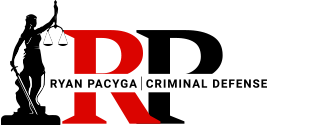Prosecution for alleged mortgage fraud cases in Minnesota has exponentially increased since 2007. This is due to several factors including but not limited to the crash of the real estate market and the willingness of the mortgage industry to gloss over sound lending policies while they rushed to fund as many loans as they could. Once the market crashed, banks and investors were left feeling the pinch, and prosecutions increased.
Minnesota statute 609.822 governs criminal prosecution in mortgage fraud cases. It criminalizes conduct for whoever:
(1) knowingly makes or causes to be made any deliberate and material misstatement, misrepresentation, or omission during the mortgage lending process with the intention that it be relied on by a mortgage lender, borrower, or any other party to the mortgage lending process;
(2) knowingly uses or facilitates the use of any deliberate and material misstatement, misrepresentation, or omission, knowing the same to contain a material misstatement, misrepresentation, or omission, during the mortgage lending process, with the intention that it be relied on by a mortgage lender, borrower, or any other party to the mortgage lending process; or
(3) conspires to violate clause (1) or (2).
An offense of residential mortgage fraud must not be predicated solely upon information lawfully disclosed under federal disclosure laws, regulations, and interpretations related to the mortgage lending process.
Sentences vary widely because they are based on the aggregate economic loss suffered by any person (or entity). While the statute indicates the maximum sentence is 2 years, this is misleading. The statute specifically permits the prosecution to charge additional crimes for the same course of conduct. In addition, each act of mortgage fraud can carry its own charge and own sentence. So if the prosecution alleges that you were involved in 10 different transactions for 10 different properties (or units), then they can charge you with 10 separate counts of residential mortgage fraud, in addition to other crimes such as theft under Minnesota statute 609.52 subd. 2 (e.g. theft by swindle, etc.). Because the theft statute calls for longer sentences than the mortgage fraud statute, prosecutors will usually charge out one theft count for every mortgage fraud count.
If it is alleged that the victim is a “vulnerable victim” due to age, infirmity, or reduced mental or physical capacity, the judge can sentence you to an aggravated sentence.
If three or more properties or transaction dates are alleged, prosecutors will often charge Racketeering in addition to theft and mortgage fraud. In those cases, the prosecution’s goal is to drive the sentence higher.
Defending a residential mortgage fraud case requires intensive document review, a thorough investigation, and sometimes forensic accounting. Sometimes “straw buyers” are charged, other times they are not. The prosecution’s investigation usually takes several months, and will often result with the execution of search warrants at multiple locations, including seizure of business records, computers, hard drives, and the like. In addition to facing criminal penalties, people accused of residential mortgage fraud may lose their real estate salesperson license or mortgage broker license.
Several alleged residential mortgage fraud cases are defensible, and I have underlined the most important requirements in the statute above. In addition to those items, the alleged loss amount is often a source of contentious disagreement. This bears directly on sentencing exposure.
Criminal Defense Attorney Ryan Pacyga defends mortgage fraud and other alleged crimes in State and Federal cases around the nation. For more information visit www.arrestedmn.com and follow him on Twitter @ArrestedMN

